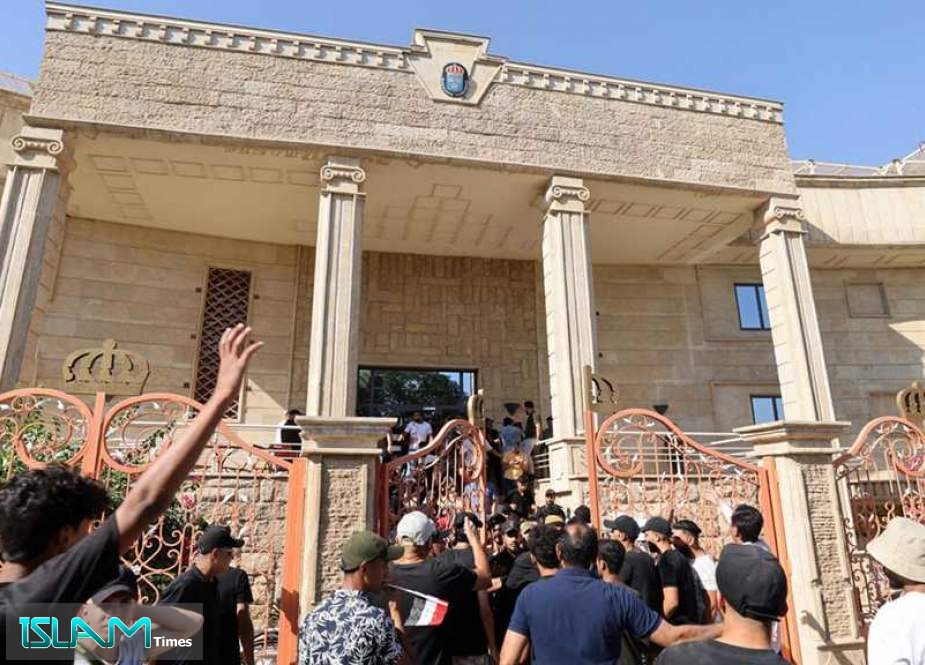In the wake of a violent protest against a Quran desecration event held in Sweden, the Swedish embassy in Iraq has made a significant decision for security reasons. The country’s foreign ministry announced that they have temporarily moved the embassy’s operations and staff to Stockholm. Followers of the populist Shia leader Muqtada al-Sadr led the protest, storming and setting the embassy on fire, which led to the Iraqi government expelling the Swedish ambassador. Additionally, the Swedish telecommunications company Ericsson faced repercussions as Iraq reportedly suspended the work permits of its employees. The situation has sparked reactions both in the Middle East and around the world, with Sweden condemning the violence while acknowledging the importance of respecting diverse cultures and religious beliefs.
Embassy Temporarily Relocates Operations to Stockholm Amid Security Concerns
Amidst escalating tensions and security threats, the Swedish embassy in Iraq has taken a decisive step by temporarily relocating its operations and expatriate staff to Stockholm. The embassy’s move comes as a response to the violent protest that took place in Baghdad, where hundreds of Iraqis, primarily supporters of Muqtada al-Sadr, stormed the embassy and set it on fire. Such actions have been deemed “completely unacceptable” by Swedish Foreign Minister Tobias Billstrom, who also emphasized the government’s strong rejection of Quran desecrations or any offensive acts against holy scriptures.
Ericsson Faces Fallout Amid Quran Desecration Controversy
As the aftermath of the Quran desecration event in Sweden unfolds, Swedish telecommunications giant Ericsson has faced potential consequences in Iraq. Reports emerged that Iraq had suspended the work permits of Ericsson employees in protest against the offensive event. However, the Iraqi prime minister’s foreign affairs advisor, Farhad Alaadin, clarified that no such suspensions had occurred. Ericsson, for its part, expressed deep concern over the incident in Sweden, stating that it does not align with the company’s core value of respect for religious beliefs and values cherished by Muslims worldwide. The company’s focus remains on ensuring the safety of its employees in Iraq, where it has about 30 full-time staff members.
Global Reactions to Swedish Quran Desecration Incident and Baghdad Protests
The Quran desecration event in Stockholm triggered widespread reactions across the Middle East and beyond. While Western countries condemned the violent storming of the Swedish embassy in Iraq, people in Iraq, Iran, and Lebanon held demonstrations to denounce Sweden’s decision to permit such a provocative event. In Baghdad, protesters carried copies of the Quran and images of Shia cleric Moqtada al-Sadr during their demonstration. In Iran, the response was even more intense, with crowds waving Iranian flags and burning the Swedish flag. Meanwhile, in Lebanon, demonstrations took place following a call by the Iran-backed Shi’ite group Hezbollah.
The temporary relocation of the Swedish embassy to Stockholm, as well as Ericsson’s predicament in Iraq, is direct ramifications of the Quran desecration incident in Sweden. The event sparked strong reactions in the Middle East and around the world, with governments and organizations condemning and expressing worry. In the face of such difficulties, Sweden emphasizes the benefits of cultural and religious variety while being steadfast in its opposition to activities that hurt any faith community. The world community is keeping a careful eye on how this debate develops and how all sides involved endeavor to establish common ground and maintain mutual respect.















